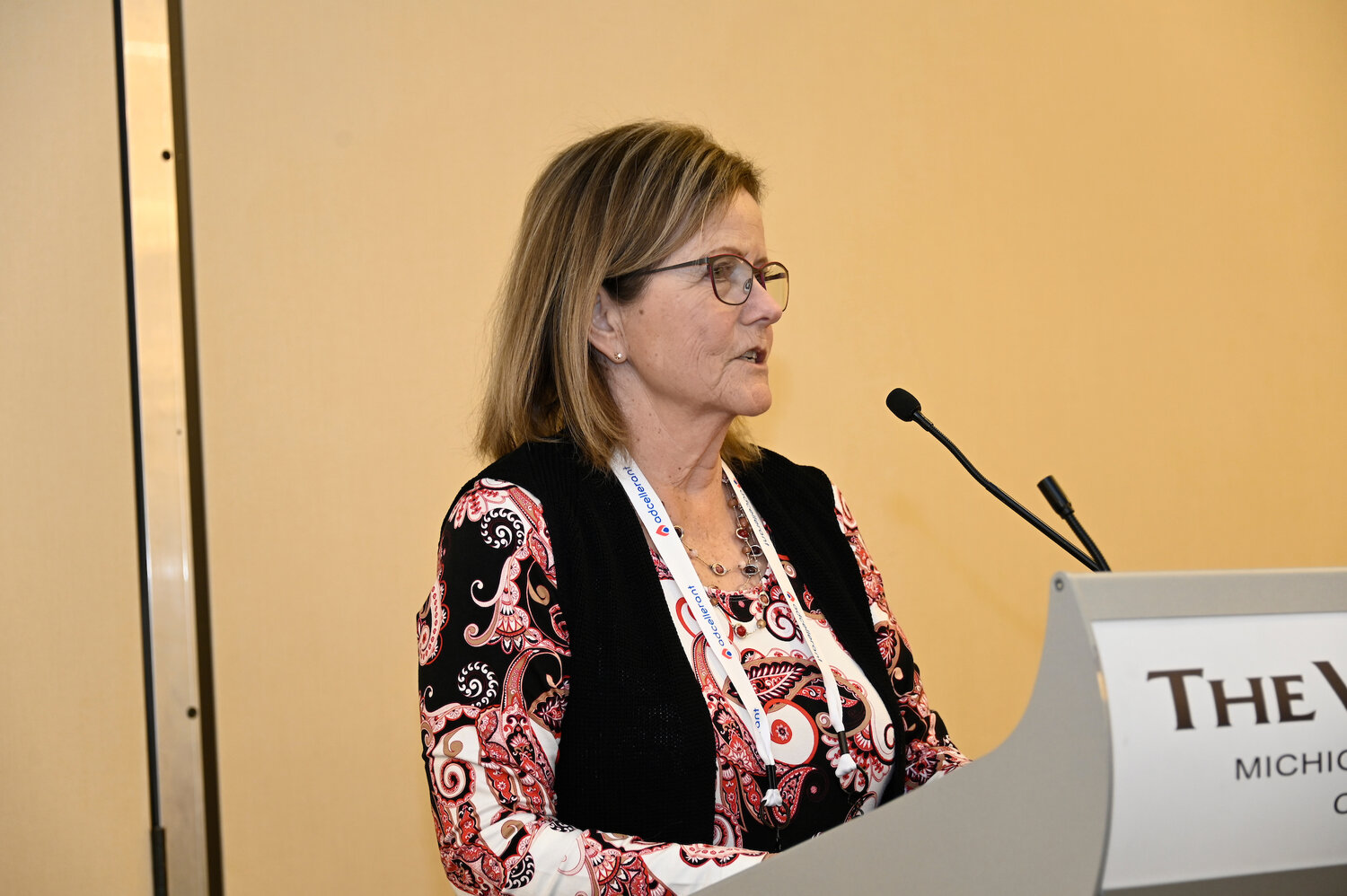
Heidi Wright was already doing great things running newspapers in Oregon but she won me over last month, when she was elected president of the America’s Newspapers trade group.
In her acceptance speech before a room full of publishers in Chicago, Wright half-jokingly scolded any of them who were publishing “ghost” newspapers with empty newsrooms.
Whether the 1,650 or so publishers in the organization can avoid shedding more journalists is an open question, though.

They’re all hoping to weather another potential ad slowdown in 2024, grow subscriptions now underpinning their business, build up digital operations, secure fair compensation from tech giants and persuade Congress to help them survive this evolution.
Wright doesn’t have solutions for each of them but she has opinions on what they need to do to survive.
“When I say business sustainability, I mean not just from a profit standpoint,” she said in an interview. “The businesses, they can’t be failing financially and they can’t be failing the mission of community journalism. If they are it’s not a sustainable business operation. They’ve got to find ways to first and foremost make sure they’re funding their newsgathering operation.”
Wright said she doesn’t “pretend to understand how to make that happen in other communities” but can share what’s working for Salem-based EO Media, where she is chief operating officer and publisher of the Bend Bulletin.
“At least in our operation, what we’re trying to figure out is how do we keep an adequate level of journalists employed in the communities where we’re entrusted with the role of providing fair and balanced news reporting,” she said. “Again, in my role as an operator or my role as the head of America’s Newspapers, I don’t pretend to have the answers to those questions but I sure think it’s something we have to pay attention to.”
Otherwise newspapers face the death spiral of losing readers, cutting further, then losing more readers.
“It doesn’t take a lot of imagination to see what’s going to happen, you’re already seeing it in some communities,” Wright said. “What happens to that newspaper if you have no substance in your newsroom? It doesn’t work. People won’t continue to pay for a subscription to a product that doesn’t produce any relevant, or very little relevant, community-based journalism.”
Wright said publishers are especially focused now on increasing reader revenue, or subscriptions, and supplementing that with other revenue and outside support.
“That’s what we’re all working toward, building up that side of the business, and also other revenue streams, philanthropy and government,” she said. “To me those are the three areas we need to focus on. Whatever America’s Newspapers can do as an association to support that needs to be a major area of focus.”
Wright admits she’s one of the lucky ones, working for a fourth-generation publishing family, the Forresters, who are not beholden to Wall Street and prioritize public service over profits.
Her newspaper career began in 1996 when a friend encouraged her to leave a Montana power company, where she worked in accounting and regulatory affairs, to become controller at The Montana Standard newspaper in Butte.
She became publisher then moved to a paper in Klamath Falls and later to a Bend-based publishing company. Wright joined EO Media before the Bend company liquidated in 2019, with EO Media acquiring the Bulletin.
EO Media, named for its Pendleton-based East Oregonian, publishes 13 titles, including the Rogue Valley Times in Medford, which it launched in February after the local paper failed. Altogether it employs around 200 people, including 97 in newsrooms.
That includes 30, 14 in the newsroom, in Medford. That’s more than many of the papers owned by national chains nowadays.
Even so, Wright expects the startup to be profitable within a year. It prints three days a week plus online editions.
The key to making it work?
“We’re investing in the journalism,” Wright said.
Wright also shared perspective on the outlook for legislative support and more. Here are edited excerpts of our conversation.
Q: Why do you think newspapers will have more luck getting help from Congress this year, or will they?
A: I think it’s building momentum and awareness, the more familiarity members of Congress have, understanding the issues our industry is facing and the impact it will have on their constituents if our industry continues to suffer. Will it be this year, next year, I don’t know. But a lot of really good groundwork has been laid and we’ll continue to build upon it.
Q: Are you concerned that if they don’t act soon, there’s not much left to save?
A: Yes, I am concerned that it’s going to be too late for some operations as it is now. The longer we delay the more strain our industry and society are going to feel, as you shut down community-based journalism.
Q: How is the Rogue Valley Times doing?
A: Really well. We have significantly more website traffic than we do in Bend and Bend has pretty good traffic. The newsroom has done an incredible job. They’re doing some very good quality journalism and we think it’s going to be financially rewarding for the company once we’re through the startup period.
Q: What might reverse declining news consumption and trust?
A: I think they can swing back, based on trying to figure out what is trusted news and what is not. That is still the core of what we offer — trusted news, vetted news. We’re producing stories with ethics, with professional journalism. People are going to gravitate toward that.
Q: I hope so.
A: Is it going to be a smaller number? Absolutely. I don’t have any magic bullets for that, especially the younger generation who grew up thinking they don’t have to pay for news and can pick what they want on social media. It’s a challenge but I think we have some opportunity as more and more disinformation is out there and AI and all the ramifications of that. We’ve got an opportunity. How we monetize that, and continue to pay our journalists, is what keeps a lot of us up at night.
Brier Dudley on Twitter: @BrierDudley is editor of The Seattle Times Save the Free Press Initiative. Its weekly newsletter: https://st.news/FreePressNewsletter. Reach him at bdudley@seattletimes.com.